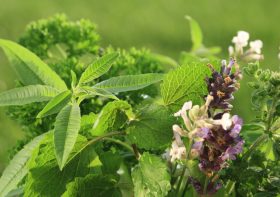Tips For Preventing Food Allergy

Food Allergy is a common problem for many Americans. The symptoms of this condition can be very uncomfortable and even life threatening. People with this disorder usually experience a family history of allergies, and it can run in the family. People with other allergy conditions, such as asthma, are also susceptible to developing this disease. If you’re worried about a food allergy, you can read the following tips to help you protect your health.
A skin prick test is not a reliable indicator of true food allergy. While the presence of specific antibodies and total IgE antibodies can identify a patient’s food allergies, the symptoms may be difficult to detect. In severe cases, you may need to seek medical attention and use an epinephrine or Epi-pen. While these tests have limited predictive value, they should still be performed to ensure you don’t have an allergic reaction.
If you suspect your child has food allergies, make sure you’re prepared. Keeping a first-aid kit nearby will help you manage the symptoms of an allergic reaction. Talk to your healthcare provider about what to do if a symptom occurs. There are also medicines available to help alleviate some symptoms caused by food allergy. However, you must follow your doctor’s advice if you have children. In addition, you should avoid the foods that your child has an allergy to, especially if they’re breastfeeding. If you can’t prevent the food from causing the allergic reaction, you should provide vitamins and minerals to your child.
You must also make sure that you avoid foods with hidden proteins. These foods may contain milk proteins, egg proteins, soy proteins, peanut products, and more. Allergy to these substances is a life-threatening problem for people suffering from this condition. As such, you should always talk to your allergist to discuss your treatment options. He or she will be able to tell you what type of foods are right for you.
Symptoms of food allergy can vary. Some are mild while others are severe, and you should talk to your healthcare provider to determine what to do. You should also be prepared to deal with any allergic reaction that you may experience. You should have a first aid kit handy, so that you can treat your allergic reaction quickly. It is important to avoid the foods that cause your allergies, especially when breastfeeding. In addition, you should avoid eating the foods if you have food allergy and are pregnant.
The symptoms of food allergy are not always obvious. Acute reactions are the most common. In some cases, a patient may experience itchiness or mild swelling in the mouth. In severe cases, the person may even die. Some children are not allergic to certain foods, but the symptoms will be noticeable within hours or days of exposure. Some children will outgrow these allergies and outgrow them. They might also outgrow other allergies.



